《大国的兴衰》作者保罗·肯尼迪:中美之间出现惊人对比!
来源:环球网
9/03/2021
按购买力平价计算,中国经济的规模与美国差不多大了。这是一个惊人的对比。
英国《经济学人》杂志9月1日文章,原题:美国权力的未来 近年来,外交政策思想家们考虑最多的莫过于美国作为一个世界大国是否处于不可逆转的衰落这一问题。最近在阿富汗发生的事件——标志着美国从亚洲的又一次撤退——肯定会助长这种情绪。但对美国政策制定者来说,一个更长期的问题是中国力量的稳步上升。中国是否即将超越美国?衡量世界事务中这种转变的最佳经济和军事标准是什么?或者说,美国主导的时代是否正在结束,取而代之的是亚洲世纪?
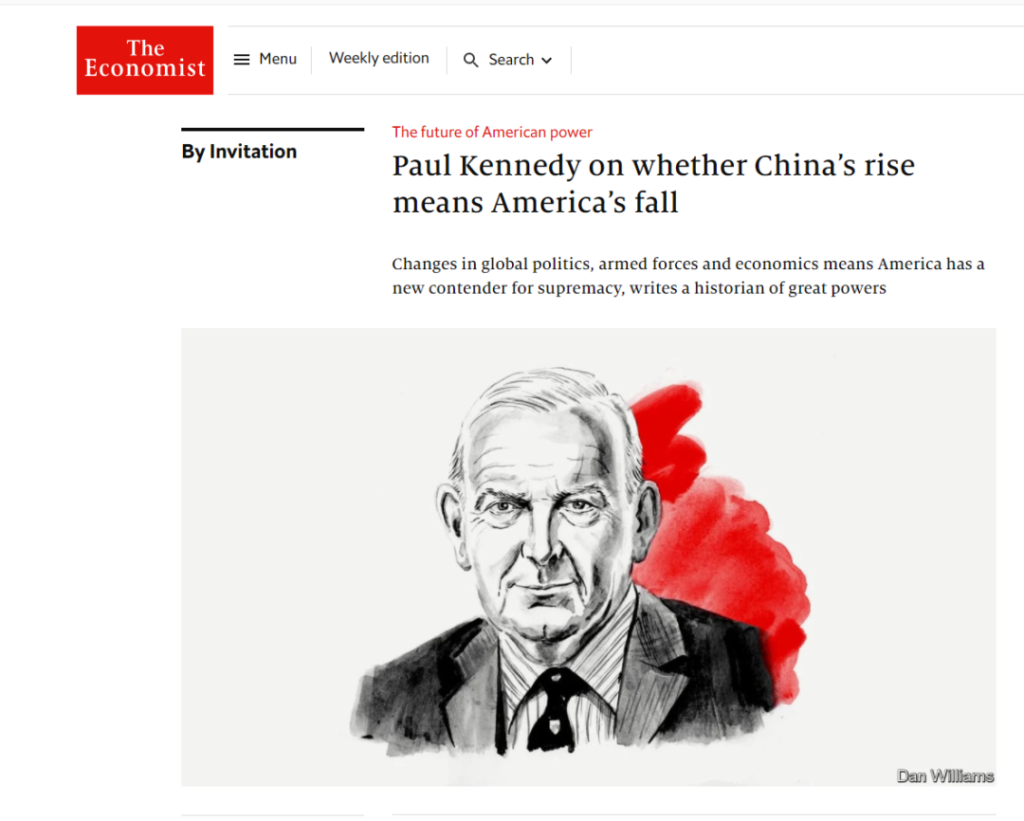
英国《经济学人》杂志9月1日文章,原题:美国权力的未来
对最后一个问题急于说“是”可能是不明智的。当前的许多情况与笔者上世纪80年代写《大国的兴衰》时差不多。事实上,过去40年里,美国的相对地位曾一度回升,比如苏联解体后的上世纪90年代中期及2003年萨达姆政权被推翻后。然而,与其他大事相比,这样的回升是短暂的,且对美国不利。不妨考虑如下三个重大的和长期的转变:在国际关系、军事力量和经济实力方面。

首先,半个世纪前冷战的两极世界以来,战略-政治力量的组合发生了变化。现在的国际体系包括四五个非常大的国家。无论是通过硬实力还是软实力,其中任何一国都无法迫使其他国家做他们不想做的事情。这标志着世界权力的一个极其重大的重新分配。因此,说美国仍然是第一,即便没错,也是片面的。因为就算美国是丛林中最大的大猩猩,它也只是一群大猩猩中的一个!
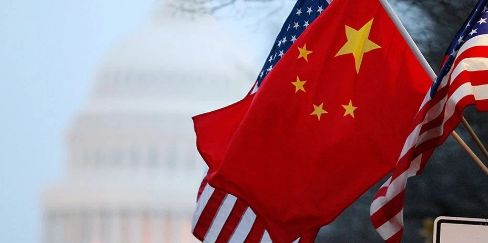
第二个变化,是美国军队比上世纪80年代时要小得多,也老旧得多。空军究竟能继续修补和飞行其有着70年历史的B-52轰炸机多久(它们比所有现役军官的年龄都大)?而海军还能继续整修其30年的“伯克”级驱逐舰多久?由于五角大楼定期将舰艇部署到不同地区,美国可能根本没有足够的舰艇来履行其众多的全球承诺。因此,在历史学家如笔者看来,美国就像老迈的哈布斯堡王朝,军队虽然庞大但疲惫不堪。
美国军力规模问题的背后,潜藏着一个更大的问题:在未来某个无人机主导的战场上,美国相对中国、俄罗斯或伊朗等对手的胜算可能会发生变化,美国的优势将不复存在。
美国负担得起保持领先的代价吗?美国需要坦率地问自己,要拥有一支能够履行众多义务的军队,可能需要其GDP多大比例的军费(目前约为3.5%)。即使是4%也远远不够,6%可能差不多,但这个代价太高了,经济学家和国会肯定会大声反对。
这就提出了第三个变化,也是权力的关键因素:相对经济实力。20世纪80年代以来,全球最大的转变是中美两国经济的相对规模。不论人们对中国经济实力有何种质疑,事实是,不管是疫情前还是疫情后,中国的经济增长更快。按购买力平价计算,中国经济的规模与美国差不多大了。这是一个惊人的对比。整个20世纪,美国经济体量都数倍于其他任何大国。日本偷袭珍珠港时,美国经济大约比日本大10倍。希特勒宣战时,美国经济大约比德国大3倍。
由于中国的人口规模和繁荣的经济,世界正发生惊人的翻转。中国有14亿人口,而美国只有3亿多,中国人平均收入只需要达到美国的一半,其经济总量就能达到美国的两倍。这将为中国提供大量资金用于未来的国防。无论民主党还是共和党的总统对此都无能为力。
US must outcompete China for a stable relationship: Daniel Russel
Beijing’s aggression comes from perception that America is declining, former official says
TSUYOSHI NAGASAWA, Nikkei staff writer
7/10/2021
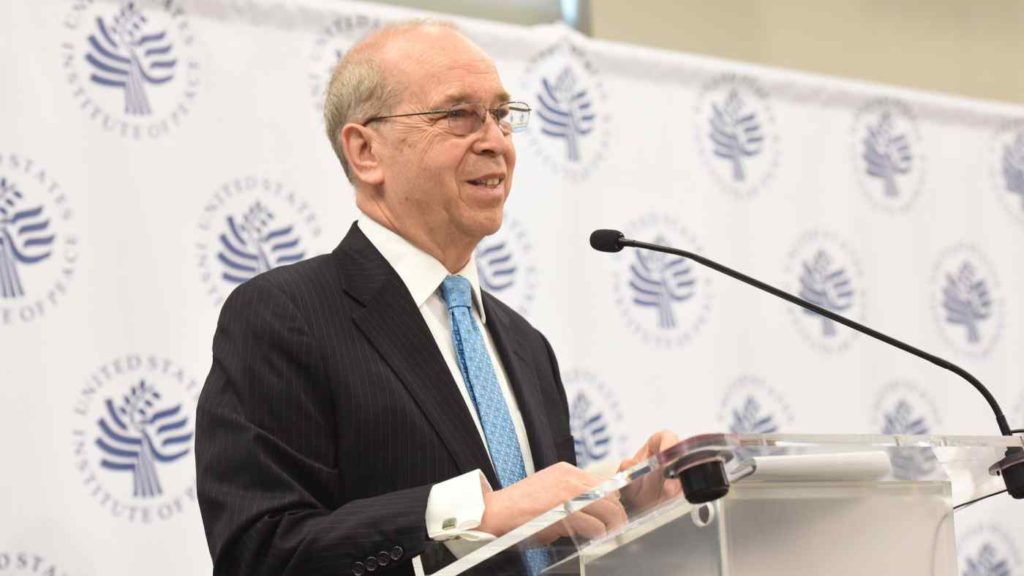
WASHINGTON — The secret visit of U.S. Secretary of State Henry Kissinger to Beijing on July 9-11, 1971, kicked off an American policy of engagement with China. Fifty years later, with China on track to overtake the U.S. economy as early as 2028, bilateral relations are at a crossroad.
In an interview with Nikkei, Daniel Russel, former U.S. assistant secretary of state for East Asia and Pacific affairs during the Obama administration, said the nature of the relationship is changing, and it would be wrong to assume that Washington would return to the “good old days,” supporting China’s growth while making an effort to avoid friction and confrontation.
But Russel, now vice president for international security and diplomacy at the Asia Society Policy Institute, also stressed that aiming for regime change in Beijing is unrealistic and unwise, and would be in line with the “catastrophic” failures of attempted regime changes in the Middle East.
Edited excerpts from the interview follow:
Q: Since Kissinger began an engagement policy with China in the 1970s, the U.S.-China relationship has been relatively stable. The U.S. has invited China into the international system. Looking back, how do you evaluate the pros and cons of this policy?
A: If we took a step back and looked broadly at the historical record, we see that the United States deliberately chose a policy of engaging China and supporting its development, first back in 1972 under President Richard Nixon, where this was part of the strategy for containment of the Soviet Union, but then again in the ’90s, when Bill Clinton was president, after the end of the Cold War, the collapse of the Soviet Union. There was a second policy of engaging China that led up to the entry of China into the WTO.
From the Clinton era on, America’s policy toward China was based on the view that a stable China, a prospering China, would serve the best interests of the United States, in part because a weak China, or an insecure China, would likely pose a lot of risks to U.S. interests and to our allies.
I’ve never heard a persuasive argument that it would have been better to do something different than engagement, at those junctures. The United States made a common-sense decision, to try to engage China and to shape its behavior, to integrate China and to give it a stake in the international system, that the United States had largely designed.
And, while people hoped for political liberalization, I don’t think that political liberalization was the reason that the U.S. government and other governments took this approach, because what was the alternative?
Who is going to argue that an effort to isolate China and to contain China, or to destabilize China would have been a better strategy? It would have been a recipe for disaster.
Today, there is a kind of new conventional wisdom that is based on the view that cooperation with China is impossible, that engagement with China is a failure.
If you look at the historical record, that’s just not defensible, that’s not true.
But that doesn’t mean that we can go back to the “good old days” where we tried to support China’s growth, where we made an effort to avoid friction and confrontation.
There are two reasons for this.
In the past, as long as there was a large disparity, a gap, in military power and economic power between the two countries, the relationship was reasonably stable. But China has become much more economically successful and much more militarily and technologically capable. China is now close to being a peer power to the United States, which it never was.
Secondly, in the Xi Jinping era — which now is about almost nine years — China’s leadership has become more assertive, more ideological, and more brazen, more overt, in challenging global norms and challenging U.S. leadership. We’ve seen bullying behavior intensify by China.
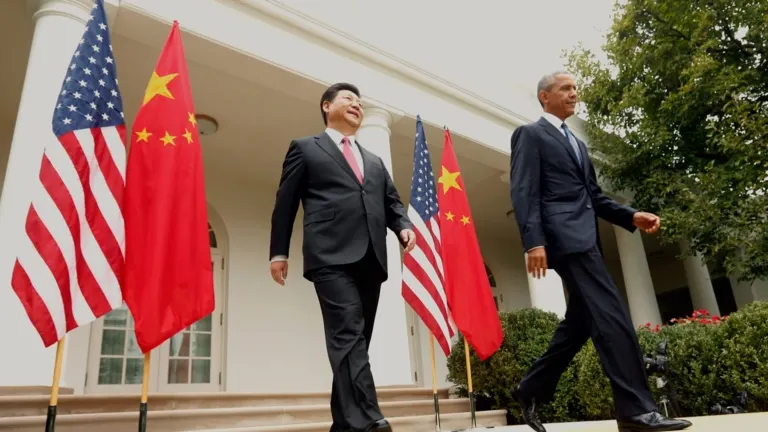
Q: What were negotiations with China like in the years of President Barack Obama?
A: We had two very different experiences with the Chinese. On the South China Sea, Obama had very direct, very blunt, discussions with Chinese President Xi Jinping repeatedly, from 2013 and the Sunnylands meeting on, each time more forcefully warned Xi that China’s island building, its reclamation, its activities, were creating risk, and that the United States had a responsibility to the defense of the Philippines and more broadly had a strong commitment to freedom of navigation, and could not accept efforts by China to claim the so-called nine-dashed line, or to develop outposts in international waters, and that this was damaging the U.S.-China relationship.
Finally, in the meeting in 2015, Xi made an assurance, and he made a public assurance as well, that China would not militarize the outposts that it built.
But, in that case, China did not ultimately honor that commitment, and the problematic behavior continued. And it had a very damaging effect on U.S. relations with China.
The issue of cyber theft, and particularly the Chinese government’s sponsorship of cyber-enabled theft of American intellectual property from companies, that was a different experience, because for years Obama raised this issue with Xi and warned of consequences, and told Xi that, although China was denying it, the United States knew that China was conducting these attacks, and that they couldn’t hide from us.
And finally, the Chinese saw evidence that the United States was preparing to take very severe action in retaliation for this, and the Chinese leadership recognized that they were reaching a dangerous, critical point, and so they sent to Washington the top security official in China, Meng Jianzhu, who came with instructions: don’t come home without an agreement.
And he stayed in Washington for several days. He met with the U.S. government team. And you may remember that the U.S. and China issued a four-point agreement. In that agreement, China essentially acknowledged that this cyber theft had occurred, committed to end it, and made some public commitments that they did implement, they did honor.
For several years after that, the U.S. agencies that were monitoring cyberattacks formed a judgment that China had, in fact, scaled back significantly the attacks that at least the government, the state, was supporting.
Q: Based on those lessons, how should the U.S. approach China?
A: My judgment is that Chinese behavior has become much more troubling and dangerous as Chinese leaders have begun to believe that they are as strong as the United States, that they are getting stronger and the U.S. is getting weaker.
I don’t think that it is wise or feasible to pursue a strategy of weakening China. Instead, it is necessary and wise to pursue a strategy of strengthening the United States and its allies because, as I pointed out before, when the power differential between the United States and China was wider, the relationship was very stable.
As long as the Chinese perception is that the United States is weak, is on the decline, is withdrawing from its traditional role in shaping and often leading international affairs, in rules-setting and so on, and has abandoned the sort of moral high ground that gave the United States so much soft power over the decades, China is incentivized to challenge more directly.
If and when the Chinese leaders see more evidence that the United States is demonstrating resilience, is renewing and reinventing itself, that the overall strength of the democratic communities is growing, not shrinking, the Chinese leaders will be much more open to compromise. They will be much more flexible, much more careful, in their behavior.
Chinese leaders are Leninists and Leninists respect strength and have contempt for weakness.
If the United States, over the course of this year, shows, for example, extraordinary ability to stop the spread of COVID-19, an extraordinary ability to develop vaccines that have 96% to 97% effective rates, demonstrates the ability to manufacture billions of doses and make them available to countries around the world, whereas China, despite its very strict and draconian controls, now continues to battle emerging cases of the delta variant, and the Chinese vaccine, Sinovac, which they have distributed around the world, is now revealed to be far less effective in preventing COVID than advertised, that’s a way in which the United States is already demonstrating its strength.
It is already outcompeting. We’re not hurting China. We’re not blocking China. But we are outperforming China.
Q: You talked about the leadership of Xi Jinping himself. How is he different from former presidents Hu Jintao and Jiang Zemin before him?
A: Jiang Zemin and Hu Jintao were not democrats; they had no interest in sharing power. But they were also pragmatists, and they were continuing the tradition of Deng Xiaoping, the tradition of “hiding and biding,” the tradition of opening and reform.
Xi Jinping represents a more nationalist and a more ideological strain of Leninism. In the Chinese communist system, he is clearly representing those who believe that more control is the right answer, and that political liberalization is a recipe for disaster that China cannot afford.
Q: China hawks in the U.S. have argued that the biggest problem is the Chinese Communist Party and thus the U.S. should seek regime change.
A: Number one, the people who are advocating regime change are the very people that have experimented with regime change in Iraq, in Libya, and other parts of the world. And, in every case, it has been a catastrophic failure. It’s not only that it didn’t succeed; it’s that it created immense problems in the country and immense problems in the United States.
The United States does not have the power to overthrow the Chinese Communist Party, and we know from experience that, even if we were successful, the consequences are unpredictable and immensely dangerous.
We can certainly hope for a change and an improvement. There’s much that we can do to bolster civil society within China, and much we can do to help strengthen institutions other than the Chinese Communist Party, in China.
There is a lot of pressure that can be applied externally on the Chinese leadership to limit their behavior. But the notion of the United States reaching in and changing the government in China is unrealistic and unwise.
Q: Is there a similarity between the current situation and the 1970s, in the sense that the Biden administration is now seeking a stable and predictable relationship with Russia so as to focus more on China and try to drive a wedge between China and Russia?
A: The big difference in the 1970s was that Moscow and Beijing were in an intense rivalry and were virtual enemies. Another difference was that the U.S. and the Soviet Union were in a very significant Cold War, in which we had very little economic or other mutual dependencies and were largely separated into independent blocs, and we were competing around the world for influence, in a very direct way.
Today, Russia is a relatively weak power that is largely focused on making problems, making mischief for the U.S. and for the West.
And the relationship between Moscow and Beijing is very cooperative, very collaborative. And unlike the Soviet Union, China is well integrated into the global system, the multilateral system, and the degree of economic and technological integration between China, the United States, and the rest of the West, is unimaginably large.
So, I think, in those respects, we’re in a very, very different world. And, while it is problematic for the United States when China and Russia cooperate in causing problems for us and our friends, and while there would be some virtue and value in trying to provide incentives for Moscow to moderate its behavior and to refrain from that kind of mischief-making, I don’t think there is any prospect for a kind of fundamental alteration of the triangular relationship, the way that Kissinger and Nixon changed it in 1972.
China beating US by being more like America
Cultivating human capital will be essential if the US rather than China is to be the base of the next industrial revolution
By BRANDON J WEICHERT
4/25/2021
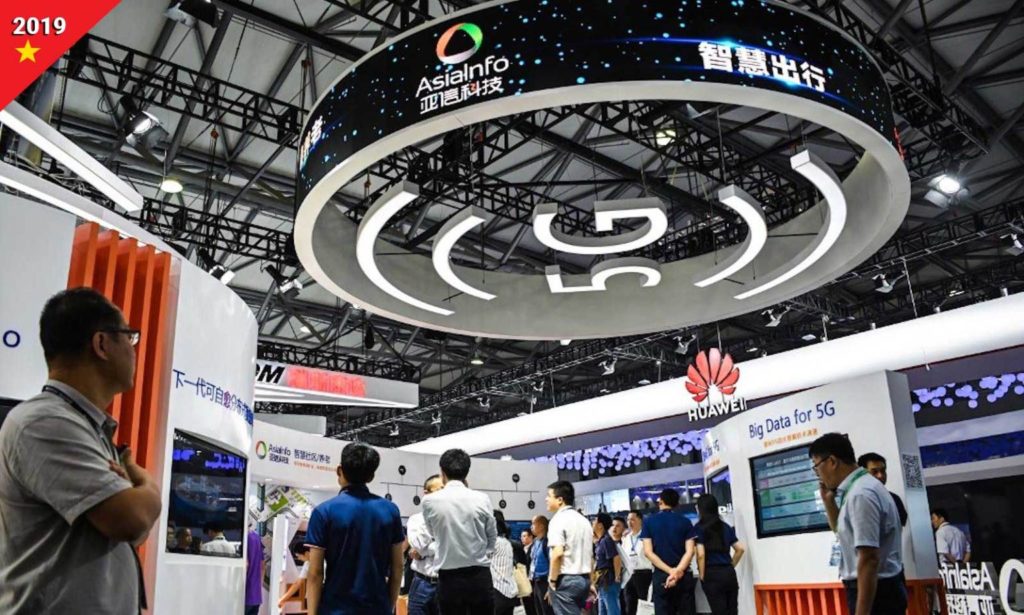
The United States transitioned from an agrarian backwater into an industrialized superstate in a rapid timeframe. One of the most decisive men in America’s industrialization was Samuel Slater.
As a young man, Slater worked in Britain’s advanced textile mills. He chafed under Britain’s rigid class system, believing he was being held back. So he moved to Rhode Island.
Once in America, Slater built the country’s first factory based entirely on that which he had learned from working in England’s textile mills – violating a British law that forbade its citizens from proliferating advanced British textile production to other countries.
Samuel Slater is still revered in the United States as the “Father of the American Factory System.” In Britain, if he is remembered at all, he is known by the epithet of “Slater the Traitor.”
After all, Samuel Slater engaged in what might today be referred to as “industrial espionage.” Without Slater, the United States would likely not have risen to become the industrial challenger to British imperial might that it did in the 19th century. Even if America had evolved to challenge British power without Slater’s help, it is likely the process would have taken longer than it actually did.
Many British leaders at the time likely dismissed Slater’s actions as little more than a nuisance. The Americans had not achieved anything unique. They were merely imitating their far more innovative cousins in Britain.
As the works of Oded Shenkar have proved, however, if given enough time, annoying imitators can become dynamic innovators. The British learned this lesson the hard way. America today appears intent on learning a similar hard truth … this time from China.
By the mid-20th century, the latent industrial power of the United States had been unleashed as the European empires, and eventually the British-led world order, collapsed under their own weight. America had built out its own industrial base and was waiting in the geopolitical wings to replace British power – which, of course, it did.
Few today think of Britain as anything more than a middle power in the US-dominated world order. This came about only because of the careful industrial and manipulative trade practices of American statesmen throughout the 19th and first half of the 20th century employed against British power.
The People’s Republic of China, like the United States of yesteryear with the British Empire, enjoys a strong trading relationship with the dominant power of the day. China has also free-ridden on the security guarantees of the dominant power, the United States.
The Americans are exhausting themselves while China grows stronger. Like the US in the previous century, inevitably, China will displace the dominant power through simple attrition in the non-military realm.
Many Americans reading this might be shocked to learn that China is not just the land of sweatshops and cheap knockoffs – any more than the United States of previous centuries was only the home of chattel slavery and King Cotton. China, like America, is a dynamic nation of economic activity and technological progress.
While the Chinese do imitate their innovative American competitors, China does this not because the country is incapable of innovating on its own. It’s just easier to imitate effective ideas produced by America, lowering China’s research and development costs. Plus, China’s industrial capacity allows the country to produce more goods than America – just as America had done to Britain
Once China quickly acquires advanced technology, capabilities, and capital from the West, Chinese firms then spin off those imitations and begin innovating. This is why China is challenging the West in quantum computing technology, biotech, space technologies, nanotechnology, 5G, artificial intelligence, and an assortment of other advanced technologies that constitute the Fourth Industrial Revolution.
Why reinvent the wheel when you can focus on making cheaper cars and better roads?
Since China opened itself up to the United States in the 1970s, American versions of Samuel Slater have flocked to China, taking with them the innovations, industries, and job offerings that would have gone to Americans had Washington never embraced Beijing.
America must simply make itself more attractive than China is to talent and capital. It must create a regulatory and tax system that is more competitive than China’s. Then Washington must seriously invest in federal R&D programs as well as dynamic infrastructure to support those programs.
As one chief executive of a Fortune 500 company told me in 2018, “If we don’t do business in China, our competitors will.”
Meanwhile, Americans must look at effective education as a national-security imperative. If we are living in a global, knowledge-based economy, then it stands to reason Americans will need greater knowledge to thrive. Therefore, cultivating human capital will be essential if America rather than China is to be the base of the next industrial revolution.
Besides, smart bombs are useless without smart people.
These are all things that the United States understood in centuries past. America bested the British Empire and replaced it as the world hegemon using these strategies. When the Soviet Union challenged America’s dominance, the US replicated the successful strategies it had used against Britain’s empire.
Self-reliance and individual innovativeness coupled with public- and private-sector cooperation catapulted the Americans ahead of their rivals. It’s why Samuel Slater fled to the nascent United States rather than staying in England.
America is losing the great competition for the 21st century because it has suffered historical amnesia. Its leaders, Democrats and Republicans alike, as well as its corporate tycoons and its people must recover the lost memory – before China cements its position as the world’s hegemon.
The greatest tragedy of all is that America has all of the tools it needs to succeed. All it needs to do is be more like it used to be in the past. To do that, competent and inspiring leadership is required. And that may prove to be the most destructive thing for America in the competition to win the 21st century.
Source: https://asiatimes.com/2021/04/china-beating-us-by-being-more-like-america/
Feb 18, 2021
Aug 4, 2020


